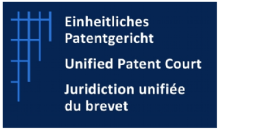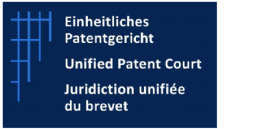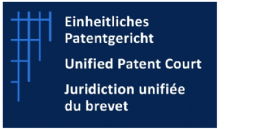This edition features updates from: The United Kingdom (UK) and the Unified Patent Court (UPC).
The Irides Weekly Update is our round-up of patent litigation news highlights from around the world.

UK
UK Court of Appeal Clarifies Confidentiality in FRAND Judgments – InterDigital & Others, Optis v Apple
The Court of Appeal has handed down a significant judgment clarifying how confidential third-party licensing information should be treated in UK FRAND litigation. The decision provides welcome guidance for SEP holders, licensees, and third parties whose licensing terms may be scrutinised in Court.
The appeal concerned the proper scope of confidentiality redactions in a High Court judgment on FRAND licensing terms between Optis and Apple. Several third-party licensors (including InterDigital, Qualcomm, Nokia, Google, Huawei, and LG) challenged the publication of financial and other sensitive terms from their licences, arguing that disclosure would cause commercial harm. The Court of Appeal was asked to decide which details should be redacted from the public version of the judgment, and to clarify the legal test for protecting confidential information in SEP/FRAND disputes.
The Court confirmed that both lump sum figures and unpacked per unit rates (including averages and totals) from third-party licences should be redacted from the public version of the judgment. Disclosure of these details would cause real commercial harm, as it would reveal the actual terms accepted in confidential negotiations and give future counterparties leverage to demand lower rates or more favourable terms. The public can still understand the reasoning of the judgment without access to these figures.
Importantly, the judgment also makes clear that older licensing information if still relevant (in this case, dating back as far as 2014) may still qualify for redaction. The Court recognised that historical terms are routinely used as benchmarks in both litigation and negotiations, and the expiry of a licence does not necessarily reduce its commercial sensitivity.
On the legal test for redactions, the Court rejected the notion that the Trade Secrets Regulations 2018 introduced a fundamentally new approach. Instead, the established legal test still applies: Courts must weigh the principle of open justice against the need to protect confidential information, allowing redactions only when justified by specific, cogent evidence and keeping them to the minimum necessary.
The Court also clarified that accidental slips or omissions in judgments can and should be corrected under the ‘slip rule’ (CPR r.40.12), even if identified by third parties. Corrections are not limited to immaterial errors or those agreed by all parties. The rule applies to any accidental error, including those that are material.
Finally, the Court addressed non-financial terms, such as whether licences permit sub-licensing. These should not be redacted unless there is specific evidence that disclosure would cause real commercial harm. In this case, the Court found no such evidence and ordered that the sub-licensing information be included in the less-redacted judgment.
Why it matters:
This judgment brings much-needed clarity for anyone involved in SEP/FRAND disputes. By setting out when and how sensitive information should be redacted, and confirming that accidental errors can be corrected, the Court of Appeal has made the process more predictable for all sides. The decision should also help keep interim costs down, not least for third parties who are often drawn into these cases. Ultimately, the Court has struck a sensible balance: commercially sensitive information is protected, but the reasoning behind judicial decisions remains open and accessible. This should give licensors, licensees, and others greater confidence in how their information will be handled in future UK FRAND cases.

UK
High Court rules that alleged patent fraud is not relevant to the liberal assessment of damages under cross-undertakings.
Following the decision in early September to strike out Sandoz’s claim for an account of profits under a cross-undertaking given by Bayer (see previous here), Sandoz made an application to the Court for permission to amend its Point of Claim in the ongoing damages inquiry. In turn, Bayer made an application to strike out Sandoz’ amendments. Michael Tappin KC sitting as a Deputy Judge of the High Court rejected Sandoz’s application to amend on the basis that the amendments had no real prospects of success.
Sandoz’ amendments to its Points of Claim (and also its Points of Reply) sought to rely on Bayer’s alleged wrongdoing in obtaining the patent and obtaining the injunctions to support that a liberal approach should be taken in the assessment of its losses. They sought further amendments that such wrongdoing should justify the Court in making presumptions in favour of Sandoz in the assessment, given that the wrongdoing had resulted in evidential difficulties in establishing the counterfactual.
Bayer did not dispute that the principle of liberal assessment should apply to the inquiry of damages under its cross-undertakings, but did take issue with Sandoz’ claim that Bayer’s wrongdoing would affect the approach taken to assessing the damages. On this point, the Judge rejected case law raised by Sandoz in support of its claim as it related to malicious falsehoods and as such was not relevant to the current issues.
The Judge disagreed with Sandoz explaining that any difficulties arising in determining the counterfactual were a result of Bayer obtaining an interim injunction on a patent which turned out to be invalid. Further, it was noted that, even if Sandoz was able to prove Bayer’s alleged wrongdoing, there was no authority to support the Court being more willing to make presumptions in Sandoz’ favour when assessing its loss.
In addition, the Judge agreed with Bayer that there was no nexus between the alleged wrongdoing and evidential issues experienced by Sandoz. As an example, he pointed to the counterfactual difficulties arising from the lack of information about the number of companies that would have launched had the interim injunction not been granted. For these reasons, Sandoz's application to amend was rejected on the basis that the amendments had no real prospects of success. It was also noted that the amendments would be likely to increase the cost and complexity of the inquiry but the Judge declined to consider this factor further due to the earlier finding on lack of prospects.
The Judge noted that it was clear from Sandoz’ evidence in support of its application that it felt strongly that Bayer should be subject to some form of sanction for its alleged wrongdoing. However, it was held that the damages inquiry was not the appropriate place for these issues to be considered, regardless of their merit.

UPC
The UPC grants first anti-interim-license injunctions
[UPC_CFI_936/2025].
The Mannheim Local Division has granted InterDigital ex parte provisional measures against Amazon, designed to protect InterDigital’s ability to pursue infringement actions before the UPC. The order prohibits Amazon from commencing or continuing proceedings, particularly in the UK, that would result in an interim licence or similar relief, which could otherwise prevent InterDigital from litigating or enforcing its European patents within the UPC’s jurisdiction. The decision has attracted notable attention in the press, where these provisional measures are being described as an “anti-interim licence injunction”.
The background to the decision includes Amazon’s initiation of UK rate-setting and DNI actions concerning several European patents, as well as similar proceedings in Brazil. InterDigital argued that Amazon was likely to seek an interim licence order in the UK, which could block enforcement of its patents before the UPC by enabling Amazon to raise a licence defence. The UPC found this risk credible, noting that recent UK case law (including Panasonic v Xiaomi, Lenovo v Ericsson, and Samsung v ZTE) has established a practice of granting interim licence declarations that (in the UPC’s view) have a coercive effect, deterring patent holders from asserting their rights in other jurisdictions.
The Court emphasised the UPC’s duty to prioritise the application of European law, as required by Art.20 of the UPC Agreement. In SEP/FRAND disputes, it held that this means proceedings must comply with EU antitrust law (specifically Art. 101 and 102 TFEU) and that any questions of interpretation must be potentially at least referable to the ECJ for clarification. The Court expressed concern that UK interim licence orders, which by their nature may be granted without a full FRAND and/or antitrust scrutiny, risk compelling SEP holders to accept terms at the lower end of the FRAND range, or even outside it, without proper review under EU law. Such outcomes could undermine the integrity of the European patent system, as determinations made outside the EU legal framework may not be consistent with the single market and could even conflict with public policy. The UPC made it clear that in its view only by ensuring compliance with EU competition law can it safeguard patent holders’ rights and maintain the proper functioning of the European patent enforcement regime.
The order is immediately enforceable, subject to InterDigital providing a security deposit within 20 days. It will lapse if InterDigital does not initiate main UPC proceedings within 31 calendar days or 20 working days (whichever is longer). Amazon may request a review of the order within 30 days. In the UPC’s view, the order is said to be defensive in nature, shielding UPC proceedings but not interfering with Amazon’s rights in other forums.
Why it matters:
This decision is a clear statement of the UPC’s willingness to assert its authority in SEP/FRAND disputes, and to protect the integrity of its own proceedings. By granting this anti-interim licence injunction, the UPC has directly addressed the risks to its jurisdiction which it perceives are posed by UK interim licence orders, making it clear that attempts to use foreign proceedings to effectively short-cut or block UPC actions will not be tolerated. The Court’s reasoning also underscores its view that EU law and competition principles must take precedence within the UPC territory.
The decision takes the view that the UPC’s order is defensive, as it is designed to shield UPC litigation, not to interfere with Amazon’s ability to pursue its rights elsewhere, nor to restrict the jurisdiction of foreign courts. The UK Courts, are said, therefore to remain free to give declaratory relief in respect of FRAND rates and to determine the consequences of such relief within their own territory. In this respect, the UPC recognised that parties may face parallel FRAND determinations in different jurisdictions, and that resolving any differences arising from such parallel proceedings is ultimately a matter for the parties themselves.

UPC
UPC Court of Appeal overturns first instance decision and revokes Seoul Viosys patent due to added matter
[UPC_CoA_764/2024].
On the 2 October, the Court of Appeal handed down its decision on the validity of a patent held by Seoul Viosys Co., Ltd. (Viosys) relating to improving the current spread and light output of flip-chip type LEDs. The appellants, expert e-Commerce GmbH and expert klein GmbH challenged the Dusseldorf Local Division’s finding that Viosys’ patent was valid and infringed on the basis that claim 1 of the patent was not disclosed in the original parent application as filed.
Viosys’ patent was a divisional patent based on an application of a European patent which in turn is a divisional application of a European patent application. The Court confirmed that an inadmissible extension of the subject matter exists if the subject matter of the granted claim is not immediately and unambiguously derived from the application by the person skilled in the art. In this case, it was necessary for the Court to consider whether the granted claim went beyond both the divisional application and the parent application.
After considering the disclosure in parent application in detail, the Court held that the parent application did not disclose the required embodiment and did not support required feature of the claim as granted. The Court also held that even if an embodiment of the feature was disclosed, it was not adequately supported in the application because the skilled person would not interpret the figures or description in such a way.
As a result, the Court declared that claims 1, 4, 5, 6, and 9 of Viosys’ patent were invalid across all designated territories (Germany, Austria, Belgium, France, Italy, Luxembourg, the Netherlands, and Sweden). Consequently, the infringement action brought by Viosys was dismissed in its entirety and Viosys was ordered to bear the costs of both the appeal and first instance proceedings.

UPC
The CoA clarifies the scope of Directors liability for infringement
[UPC_CoA_534/2024].
On 3 October 2025, the Court of Appeal handed down its decision in a dispute between Philips and Belkin relating to the validity and infringement of one of Philips’ patents relating to wireless charging technology. The Munich Local Division had found the patent valid and infringed in September 2024 but both sides had appealed various aspects of the decision, with Belkin challenging the first instance court’s findings on validity and infringement. While the Munich Local Division’s decision is left mostly intact by the Court of Appeal, a number of important clarifications were made on the infringement side of the case.
Firstly, the Munich Local Division had ordered that managing directors of Belkin were infringers and issued an order against them for patent infringement. The Court of Appeal considered Art. 63(1) EPC read together with Art. 25 EPC meant that an infringer could be someone who, while not carrying out infringing acts themselves, can have the acts of the principal infringer attributable to them as they are an instigator, accomplice or accessory. To be e.g. an accomplice that person would need to be aware of the patent infringement and that it is unlawful. The Court held that while a managing director could be an instigator, accomplice or accessory the mere position of being a managing director does not mean that they necessarily will be. The fact that a managing director can control the risk in a situation does not give rise to legal liability on its own. A managing director was held only to be liable for patent infringement if the action complained of goes beyond the typical duties of a managing director e.g. where the managing director uses the company to deliberately carry out patent infringements. In terms of the awareness of the illegality, if the company has sought a legal opinion, it can usually rely on that advice until a first instance decision. The Court was clear that to have broader liability for managing directors would have required a specific provision by the legislator as while some countries recognise the liability of directors as patent infringers others, like France and the UK, do not.
Second, the Court clarified that the term “offering” within Art. 25(a) EPC does not require a binding contractual offer to have been made. It is enough that an item is presented in such a way that a viewer can make an offer to purchase it e.g. to conclude a purchase, rental or lease agreement. This takes a board economic sense of the term and meant that the advertising products, even without a price, was considered patent infringement.
Third, Art. 64(1) EPC states that the Court may order appropriate measures to be taken in relation to products which are found to infringe. In this case Philips had requested the recall and removal of infringing products from distribution channels as well as the destruction of the products. This request was refused by the Munich Local Division. However, the Court of Appeal allowed it stating that the words “may” or “peut” did not confer a discretion on the court to grant additional requested measures unless it would be disproportionate to do so. The Court also went further, saying the ordering of such additional measures should be the norm and it is for the infringer to present sufficient arguments and evidence that the measures would be disproportionate. While the arguments of Belkin that it would be burdensome to recall its products were heard by the Court, it ultimately held that this did not justify refraining from order the additional measures.
Finally, there were some interesting comments on res judicata. The patent in issue in the UPC proceedings had already been the subject of infringement proceedings before the German national courts in relation to two of the defendants in the UPC action but not a third, Belkin International Inc. The infringement action had been dismissed, up to appeal level. The Court clarified that the German infringement action did not apply to Belkin International and, in any event, only had effects within Germany and not in other contracting member states of the UPC.

/Passle/5f3d6e345354880e28b1fb63/MediaLibrary/Images/2025-09-29-13-48-10-128-68da8e1af6347a2c4b96de4e.png)
/Passle/5f3d6e345354880e28b1fb63/MediaLibrary/Images/2025-07-10-13-52-35-189-686fc5a39f23a993118ba1a0.png)
/Passle/5f3d6e345354880e28b1fb63/SearchServiceImages/2026-02-20-09-54-03-745-69982f3bff07facd13d88f69.jpg)
/Passle/5f3d6e345354880e28b1fb63/SearchServiceImages/2026-02-18-09-25-14-317-6995857a406a38553e720e5d.jpg)